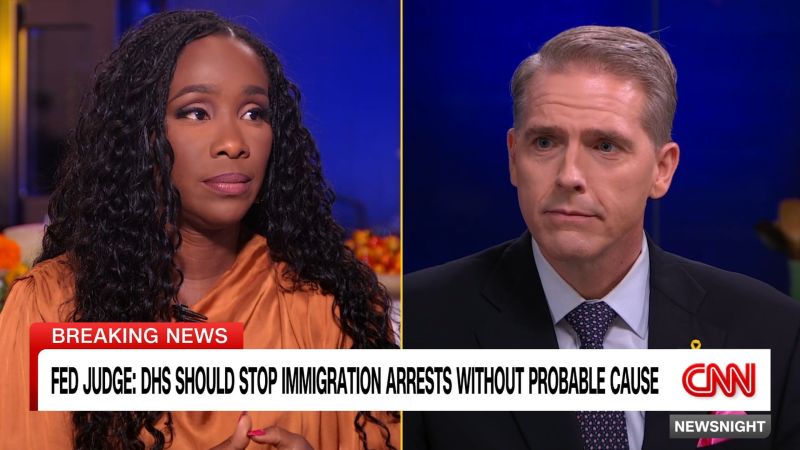
A federal judge has ruled that the Department of Homeland Security (DHS) conducted immigration arrests in Los Angeles without the necessary probable cause. This decision, issued by Judge Otis D. Wright II on September 29, 2023, requires DHS to cease detaining individuals based solely on their race, spoken language, or occupation.
In a significant legal challenge, the ruling highlights concerns regarding racial profiling and unjust immigration enforcement practices. The judge found that DHS’s actions violated constitutional protections, emphasizing that arrests cannot be made without sufficient evidence or reasonable suspicion. The ruling serves as a major pushback against policies perceived to unfairly target specific communities.
DHS has faced scrutiny over its enforcement tactics, particularly in urban areas like Los Angeles, where immigrant communities often feel vulnerable to aggressive policing. Judge Wright’s order mandates that any future arrests must be substantiated by credible evidence, aiming to protect individuals from arbitrary detention.
The case arose from complaints filed by several advocacy groups, including the American Civil Liberties Union (ACLU), which argued that the current practices disproportionately impact Latino and immigrant populations. The ACLU welcomed the ruling, stating it is a vital step towards ensuring fair treatment and upholding civil rights.
In her ruling, Judge Wright noted that the government must adhere to constitutional standards, reinforcing that race or language should not be factors in law enforcement actions. This landmark decision could influence future policies and practices, compelling DHS to reevaluate its approach to immigration enforcement.
Critics of DHS policies have long argued that such practices foster distrust within immigrant communities and hinder cooperation with law enforcement. The judge’s order aims to address these concerns by promoting transparency and accountability in immigration enforcement.
As the ruling takes effect, it remains to be seen how DHS will adapt its strategies in response to the court’s decision. The implications of this ruling may extend beyond Los Angeles, potentially impacting immigration enforcement practices nationwide.
The case highlights the ongoing debate over immigration policy in the United States, where tensions between enforcement and civil liberties continue to shape the narrative. As advocacy groups monitor the situation, the ruling serves as a reminder of the judiciary’s role in protecting individual rights against government overreach.







